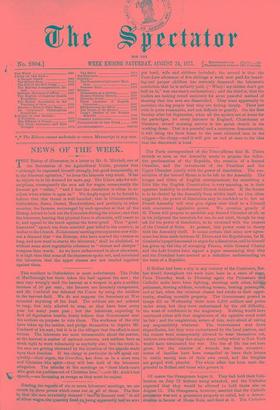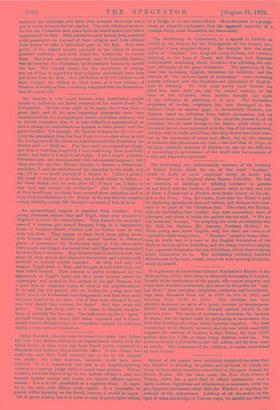Of course the Orangemen began it. They had held their
Cele- bration on July 12 without being attacked, and the Catholics expected that they would be allowed to hold theirs also on August 15. The Orangemen, however, asserted that the Catholic procession was not a procession properly so called, but a demonstratick in favour of Home Rule, and fired at it. The Catholics accepted the challenge, and from that moment there was not a pin to choose between the two parties. The only difference seems to be that the Protestant mob was a little the better armed and better organised of the two. Both parties wrecked houses, both assaulted quiet passengers on account of their religion, and both allowed their women to take a prominent part in the fray. Both were guilty of the refined cruelty involved in the orders to change quarters suddenly, and both defied the authorities to repress them. The worst murder committed, that of Constable Morton, was the murder of a Protestant by Protestants because he upheld the law. The rioters rioted for the enjoyment of rioting, not out of fear or regard for their religions, and should have been put down from the first. Any old Indian with 500 soldiers would have stopped the rioting in three hours, at a cost perhaps of thirteen or fourtemlives,—nothing, compared with the demoralisa- tion of a great city.



































 Previous page
Previous page